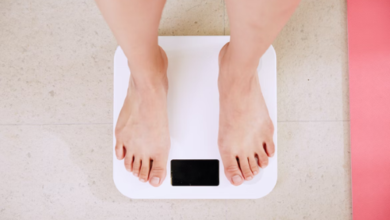Risk Factors for Stroke in African Americans
Yolanda King, Daughter of Dr. Martin Luther King Jr., Helps American Stroke Association Launch Power to End Stroke


Dallas, TX – It happened to Coretta Scott King, Luther Vandross, and Robert Guillaume. And it may happen to you — a stroke.
In fact, blacks are almost twice as likely to have a stroke as whites. About 100,000 African Americans will suffer from one this year, according to the American Stroke Association, a division of the American Heart Association.
That’s why Yolanda King, daughter of Coretta Scott King and the late Dr. Martin Luther King, Jr., has teamed with the American Stroke Association to launch Power To End Stroke.
This is an aggressive education and awareness initiative. Its goal is to reach African Americans, who are at greater risk than other ethnic groups.
Through Power To End Stroke, the association is working to:
- create awareness around the serious health disparity of stroke in African Americans;
- drive the message that in many cases, stroke may be preventable;
- increase knowledge of the risk factors for stroke, particularly high blood pressure and diabetes;
- give information to African Americans to help reduce their risks.
An American Stroke Association survey of African Americans, conducted in August by Harris Interactive, found that 70 percent of African American adults think they are knowledgeable about stroke. However,
- Only 30 percent correctly define stroke;
- 49 percent know stroke symptoms;
- Only 43 percent recognize that African Americans are the racial/ethnic group at the most risk for stroke;
- 51 percent of African American adults do not think that they will ever have a stroke.
Stroke Pledge
“We want African Americans to first take the association’s stroke pledge,” King said. “It’s a promise for people to sign committing to not just “survive,” but “thrive” by doing their part to make the right health choices for themselves, their families and their communities to prevent and overcome stroke.”
The pledge may be shared with relatives and friends, and includes a reply card for people to request and receive stroke-related information and incentives throughout the year.
The American Stroke Association encourages African Americans to know their family’s health history, and work with their doctors to prevent and manage stroke risks.
“A substantial number of African Americans aren’t making the connection that their ethnicity and family’s history increases their stroke risk,” said Bruce Ovbiagele, M.D., a neurologist at UCLA Westwood Hospital.
“Some factors, such as family history, age, ethnicity and having a previous stroke, increase risk for stroke and can’t be controlled. Others, such as high blood pressure, smoking, diabetes, obesity or high cholesterol can be changed or treated.”
“Since my mother has suffered a stroke, I know that it is doubly important for my family and me to pay special attention to the risk factors that we can control or eliminate. That’s why we are taking the American Stroke Association’s pledge. We are getting serious about reducing our stroke risks for ourselves and our legacy,” King said.
“In most cases, stroke is not inevitable,” said Dr. Ovbiagele. “Taking simple steps now against even one risk factor can help reduce your risk of stroke.”
Join the movement to fight stroke because you are the power to end stroke:
- Put down the cigarettes and stop smoking.
- Observe advice from your doctor and know your family’s medical history.
- Watch your weight and be physically active at least 30 minutes most days of the week.
- Eat healthfully, avoid foods high in saturated, trans fat, cholesterol and sodium.
- Regulate and control high blood pressure and diabetes.
It is never too late to take action against stroke. For more information about the American Stroke Association or how you can join the “movement” to fight stroke, call 1-888-4-STROKE or visit www.StrokeAssociation.org





